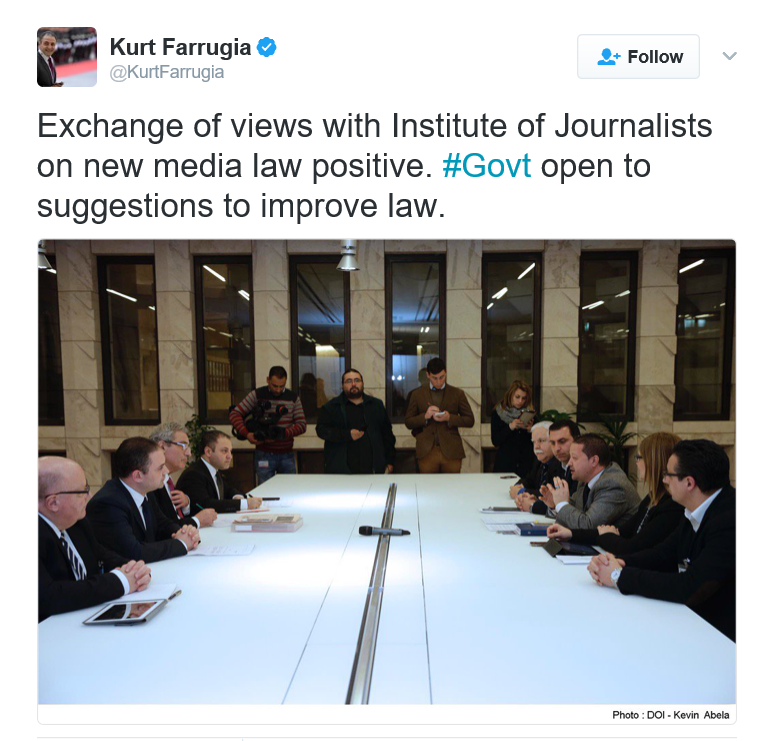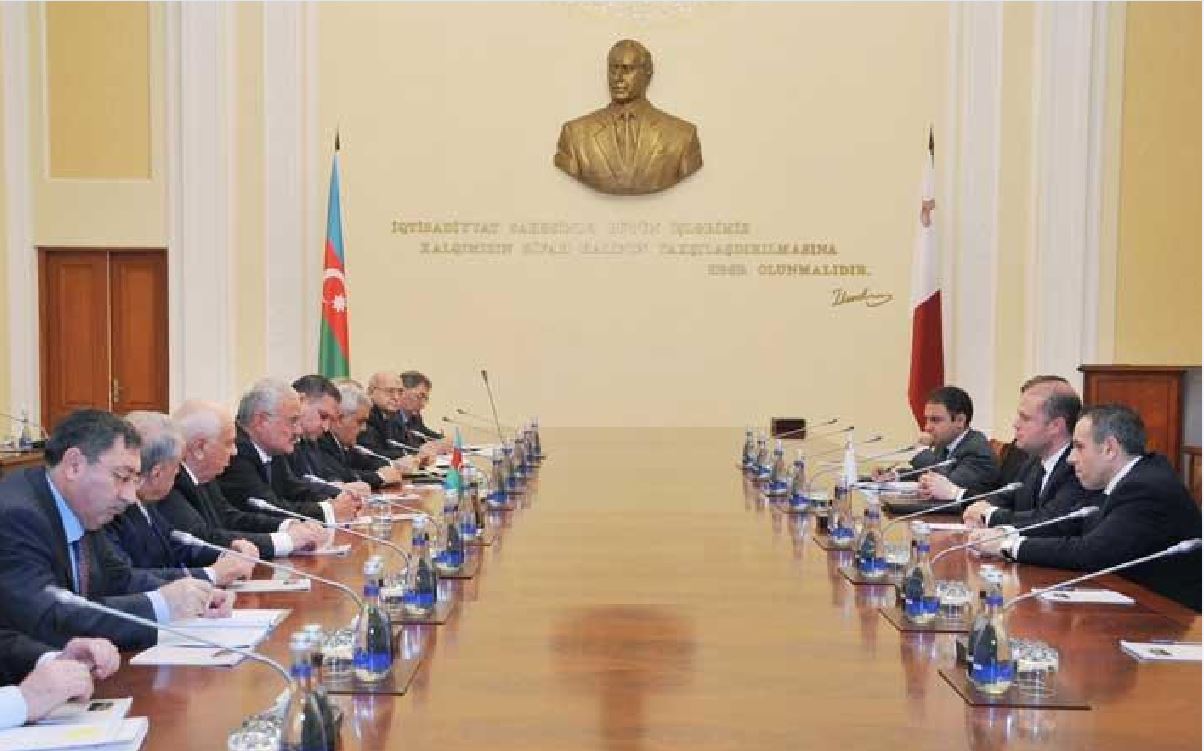This reminds me so much of that photograph from Azerbaijan
The government’s head of communications, Kurt Farrugia – who never replied to my message asking him what the Prime Minister’s position is on the newly emerged fact that his chief of staff and favourite minister were in the process of opening bank accounts at the Winterbotham Merchant Bank in the Bahamas when the Panama scandal broke in February last year – has tweeted about a meeting with the Institute of Maltese Journalists.
The government is open to suggestions, the communications chief tweets. Well, here’s mine – and it is a serious one, not made in jest.
The glaring omission in the new law is the one most needed for the protection of journalists: a special provision making it illegal for politicians and political parties to harass or intimidate, or attempt to harass or intimidate, journalists. This is ‘special case’ harassment which cannot be tackled under the existing harassment laws.
Taking my own case, for example: I have always been subjected to harassment by the Labour Party and its media machine, but since the Labour Party got into government, starting literally from the middle of March 2013, I have been subjected to serious harassment in every imaginable way possible by government authorities, politicians of the government, cabinet ministers, aides to the Prime Minister and the ongoing assaults by the Labour media machine.
It is clearly and obviously systematic, and in some cases dovetailed for maximum distress. For example, while I was dealing with the immediate fall-out the day the Economy Minister and his policy aide had my bank account frozen, I began receiving telephone calls, in the thick of it, from the police who want to interrogate me for “harassing” John Dalli. Yes, it is quite unbelievable.
Meanwhile, the language which members of the government use in my regard in official communications, including press statements issued formally through the government’s Department of Information, and the letter which the Prime Minister’s chief of staff gave to the chairman of the PANA Committee, have shocked many.
I have no means of redress, because there is no law which allows journalists to take a case for systematic and concerted government harassment to the courts. There is no Ombudsman or other authority with whom I can lodge a report and seek redress when the government and its ministers issue press releases using vicious language about me, insulting me and referring to me as a ‘hate blogger’ who ‘spreads hate’.
There is the law of libel, but libel and slander are not the point here. Intimidation and harassment are: and when it is a government harassing and intimidating a journalist, it is a very grave situation. It is not in the same category as a neighbour harassing another neighbour.
The grave nature of this government’s systematic actions against me should be considered in the light of how just one of those actions – the Economy Minister’s freezing of my bank account – drew international opprobrium from world and European organisations for the protection of journalists, human rights and media freedom. Until then, people in Malta seem to have seen it as a simple and unproblematic ‘tit for tat’: I write about them and they pay me back. That is when you realise how abnormal Malta is: that it is considered ‘normal’ for politicians to seek revenge and payback on the journalists who hold them to scrutiny, rather than something absolutely shocking.
For years I have had to repeat this simple maxim and it appears that only now is it sinking in to people, because of the extreme behaviour of members of the government in recent days:
When journalists hold politicians to public scrutiny, that is democracy – but when politicians expose journalists to public scrutiny and target them, that is a grave violation of democratic norms. It is the job of journalists to scrutinise politicians. It is not the job of politicians to scrutinise journalists. On the contrary, it is a violation associated with totalitarian regimes.


Keith Schembri, Konrad Mizzi, Kurt Farrugia and Joseph Muscat in Baku
